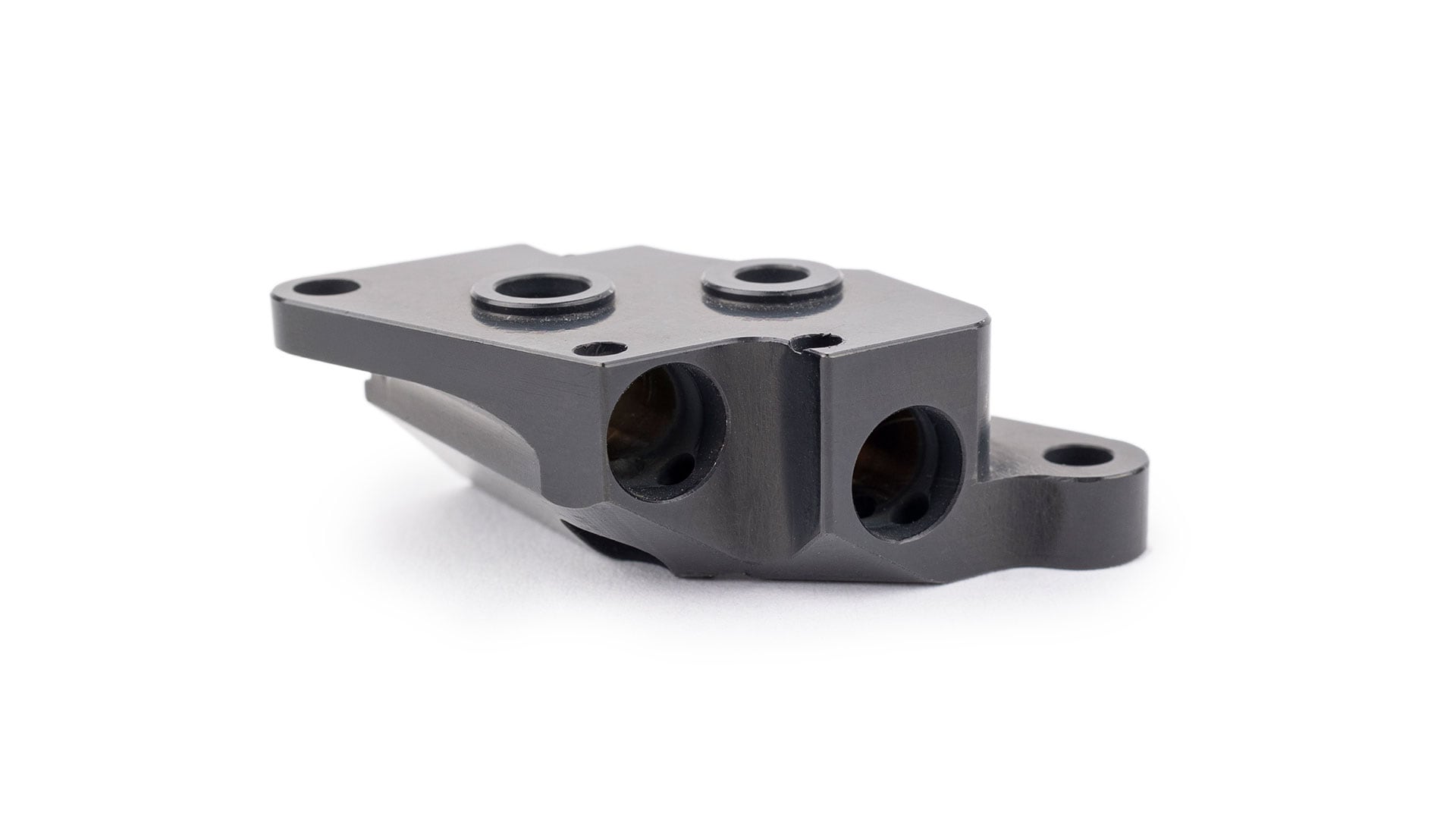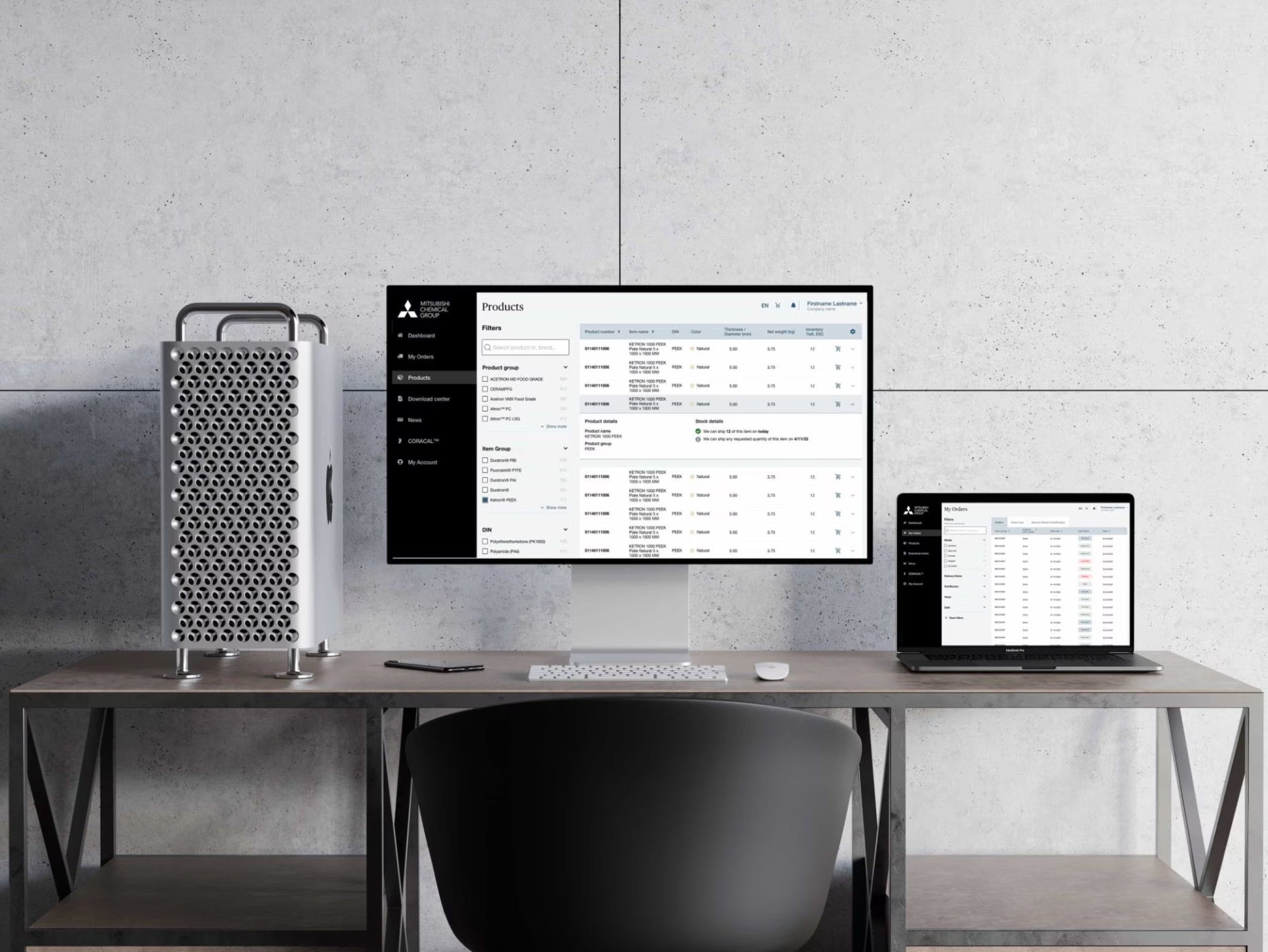
As a distributor, you are often asked to translate vague requests like “that hard white plastic” into the right material. Or maybe a customer references a brand name without knowing exactly what they need. In many cases, what they’re really looking for is an acetal. Acetron™ GP is a dependable option you can recommend with confidence.
Acetron™ GP is a highly versatile copolymer acetal that delivers across industries and environments. With its proven balance of machinability, durability, and consistent performance, Acetron™ GP covers most everyday requirements—making it a safe, reliable answer.
Acetal in Plain Terms
Acetal is the common name for polyoxymethylene (POM). The industry long ago adopted the name “acetal,” pulled from acetic acid (“acet”) and aldehyde (“al”). Its pronunciation may vary, but its role in machinable plastics is settled. Known as the machinist’s choice, acetal offers excellent free machining, rigidity, and dimensional stability.
Within this family, there are two main types available for injection molding and machining:
- POM-H (homopolymer): Known for higher strength and stiffness.
- POM-C (copolymer): Tough with superior hydrolysis (degradation by hot water) and chemical resistance.
Both machine beautifully and hold tight tolerances, but the differences matter when conditions get demanding.
That’s where Acetron™ GP comes in.
Why Choose Acetron™ GP?
Customers ask for acetal in many ways—by color, function, or brand name. Roughly 80% of stock shapes are unfilled POM-C for a reason and Acetron™ GP has become the trusted industry standard, consistently delivering performance across applications.
One challenge with both homopolymer and copolymer acetals is centerline porosity in thicker sections. Acetron™ GP helps address this—which you can learn more about here.
POM-H vs. POM-C at a Glance
Property |
POM-H (Homopolymer) |
POM-C (Copolymer/ Acetron™ GP) |
| Strength and Stiffness | 10—15% higher | Slightly lower, but more consistent |
| Impact/Toughness |
Good |
Slightly better at low temps |
| Thermal Resistance | Higher short-term | Better long-term in moist/alkaline conditions |
| Chemical Resistance | Similar, but weaker vs. chlorine | Better chlorine and food sanitizer resistance |
| Machinability | Faster on small screw machines | Equally machinable, more forgiving |
| Porosity | Centerline microporosity common | Acetron™ GP = minimal centerline porosity |
| Dimensional Stability | Excellent dry | Better in wet/harsh environments |
Where Acetron™ GP Shines*
Thanks to its strength, stability, and wear resistance, Acetron™ GP is a reliable answer when customer use cases are unclear or demanding.

Food processing and packaging. |

Pharmaceutical equipment. |

Deep water/manifolds. |

Gears, bearings, rollers, and timing screws. |
*As with all end uses, the customer will need to ensure the material is suitable and meets applicable regulations for specific end uses, including pharmaceutical and food contact uses.
Distributor Cheat Sheet
The next time a customer asks for “hard white plastic,” there’s no need to guess. More often than not, Acetron™ GP is the right place to start.
A quick three-question filter can help narrow it down:Keep it simple: When in doubt, start with Acetron™ GP. And if the application calls for homopolymer or another brand, Mitsubishi Chemical Group can supply that, too.
- Environment: Any steam, hot water, or sanitizers?
- Function: Sealing, fluid handling, or food contact?
- Machining: Tight tolerances or leak-sensitive features?
Keep it simple: When in doubt, start with Acetron™ GP. And if the application calls for homopolymer or another brand, Mitsubishi Chemical Group can supply that, too.
Ready to talk Acetal?Not every customer request is clear—but your recommendation can be. |

Simplify Your Workflow with MCAM Connect
Easily manage orders, access critical data, and get tailored support — all from one powerful platform.